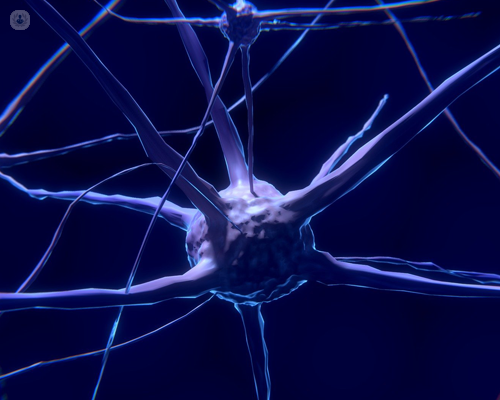How to prepare for a Nerve Conduction Study (NCS)
Written in association with:A Nerve Conduction Study is a diagnostic test used to evaluate the function of the peripheral nerves. This test helps in diagnosing conditions such as carpal tunnel syndrome, neuropathy and other nerve disorders. Preparing for an NCS is straightforward but essential to ensure accurate results. Highly respected consultant clinical neurophysiologist Dr Haga Kargwell tells us what you need to know about preparing for the procedure.

What happens in a Nerve Conduction Study?
During an NCS, small electrical impulses are delivered to the nerves via electrodes placed on the skin. The responses of the nerves are then recorded to determine the speed and strength of the nerve signals. This test is typically performed by a neurologist or a technician under the supervision of a neurologist.
Before the test
- Medication review: Inform your doctor about all medications you are taking, including over-the-counter drugs, supplements and herbal remedies. Certain medications can affect nerve function and might need to be adjusted before the test.
- Medical history: Provide your doctor with a complete medical history, including any known nerve disorders, recent surgeries or injuries.
What happens on the day of the test?
- Hygiene: Take a shower or bath to remove any oils, lotions or dirt from your skin, as these can interfere with electrode placement and the conduction of electrical impulses.
- Avoid lotions and oils: Do not apply any lotions, oils or creams to your skin on the day of the test. These substances can prevent the electrodes from adhering properly to your skin.
- Comfortable clothing: Wear loose, comfortable clothing that allows easy access to the areas being tested. You may be asked to change into a hospital gown if necessary.
- Remove jewellery: Take off any jewellery, especially items that are in the area being tested, to avoid interference with the equipment.
What happens during the test?
- Relaxation: Try to relax as much as possible during the test. Tensing your muscles can affect the results.
- Communication: Inform the technician if you feel any discomfort during the test. While the electrical impulses can cause mild discomfort, the procedure should not be painful.
Post-Test Considerations
- Normal Activities: You can typically resume your normal activities immediately after the test unless your doctor advises otherwise.
- Follow-Up: Your doctor will review the results of the NCS and discuss any further tests or treatments if necessary. Be sure to follow any post-test instructions provided by your healthcare provider.
Do you have any tips for a smooth experience?
- Arrive early: Arrive at the testing facility a little early to complete any necessary paperwork and to ensure you are relaxed before the test begins.
- Hydration: Stay hydrated, as proper hydration can improve the quality of the nerve conduction signals.
- Ask questions: Don’t hesitate to ask your healthcare provider any questions you may have about the procedure, what to expect, and any concerns you might have.
Preparing for a Nerve Conduction Study involves simple but important steps to ensure accurate and effective testing. By following these guidelines, you can help your healthcare provider obtain the most accurate results, which are crucial for diagnosing and treating nerve-related conditions. If you have any specific concerns or medical conditions that might affect the test, be sure to discuss them with your doctor beforehand.
Do you require an expert nerve conduction study? Arrange a consultation with Dr Kargwell via her Top Doctors profile.

